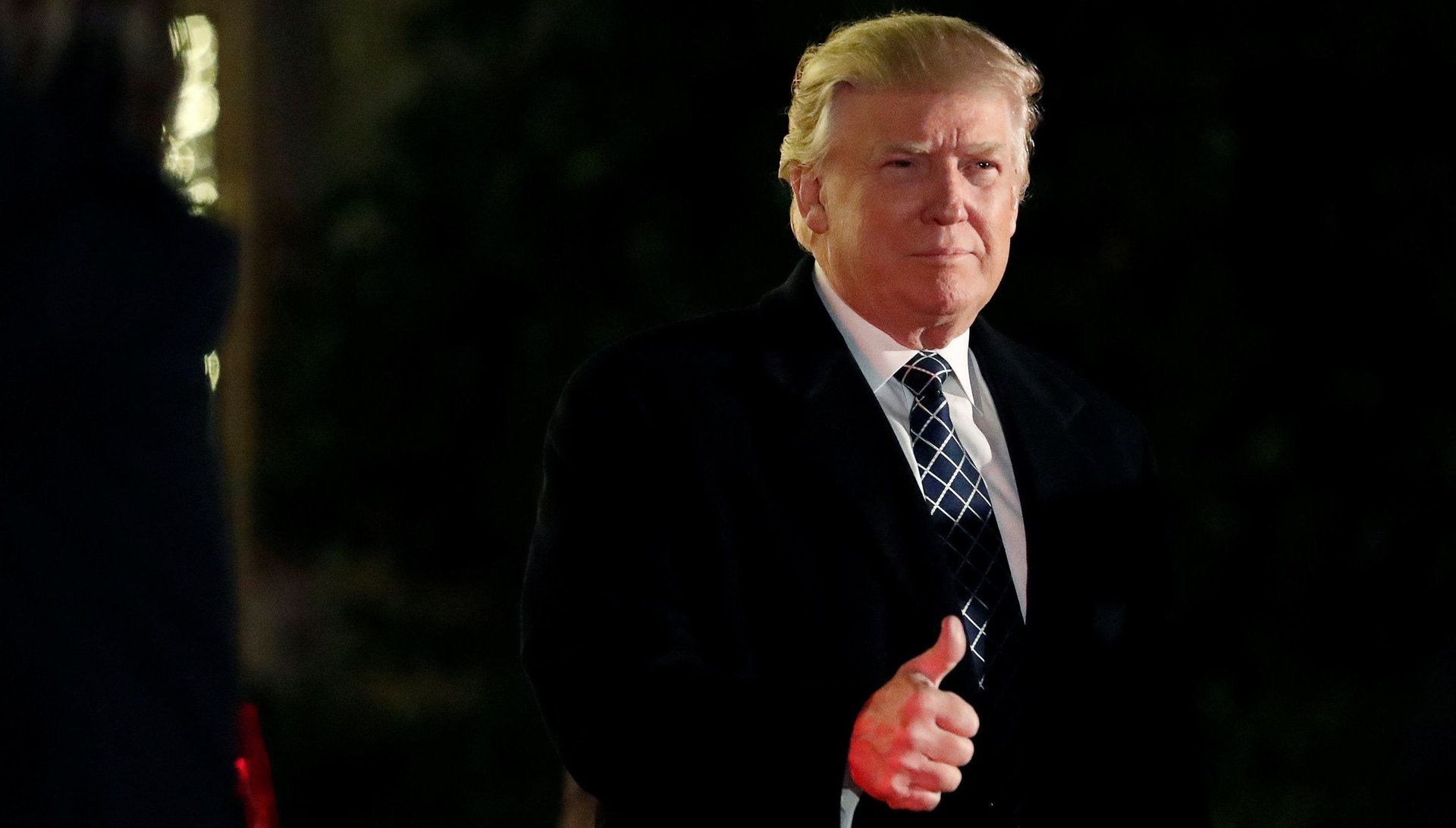Donald Trump’s poor grammar threatened a 35% tax on any US company that fires employees
Outlining complex US tax policy on Twitter has its limitations.


Outlining complex US tax policy on Twitter has its limitations.
On Dec. 4, less than 12 hours after a Saturday Night Live cold open about his inability to stop tweeting, US president-elect Donald Trump tapped out a tweetstorm promising retribution for any US company moving jobs offshore. Or, if his statements are to be taken at grammatical face value, to levy a 35% tax on literally any US company that fires its employees.
“The U.S. is going to substantialy [sic] reduce taxes and regulations on businesses, but any business that leaves our country for another country, fires its employees, builds a factory or plant in the other country, and then thinks it will sell its product back into the U.S. ….. without retribution or consequence is WRONG! There will be a tax on our soon to be strong border of 35% for these companies …… wanting to sell their product, cars, A.C. units etc., back across the border. This tax will make leaving financially difficult, but….. these companies are able to move between all 50 states, with no tax or tariff being charged. Please be forewarned prior to making a very … expensive mistake! THE UNITED STATES IS OPEN FOR BUSINESS.”
Sent through a proofreader, Trump is presumably saying that companies with offshore factories will be hit with a 35% tax on any goods sold back into the US. It’s the latest salvo in a crusade against outsourcing that claimed a victory this week after heating and air conditioner manufacturer Carrier agreed to keep some of its jobs at an Indiana factory from moving to Mexico. (The deal involved state incentives.)
Trump has promised to make America more palatable for US companies by reducing regulations and lowering taxes, but has never shied from suggesting his administration would pursue punitive measures against those moving jobs offshore. While Treasury secretary pick Steven Mnuchin and Commerce secretary pick Wilbur Ross have softened some of Trump’s more aggressive rhetoric on trade, his Twitter comments do suggest a policy that will include both carrot and stick. Last month, Trump said US manufacturing was the first thing he brought up in a post-election conversation with Apple CEO Tim Cook.
Trump being taken “seriously but not literally” has gone a long way with his supporters, and on that spectrum Twitter grammar is downright nitpicking. But for a president-elect whose relationship with the press is tepid at best, Trump’s candid remarks do gain significance—especially if they’re a glimpse at policy that could affect many US employers, as well as consumer prices.
The president-elect has already used his Twitter platform to take credit for saving an auto plant that was never closing, to claim millions of people “voted illegally,” and to announce murky plans to avoid conflicts of interest by leaving his businesses “in total.” If Twitter is to be the Trump administration’s version of a press release, then every comma counts.